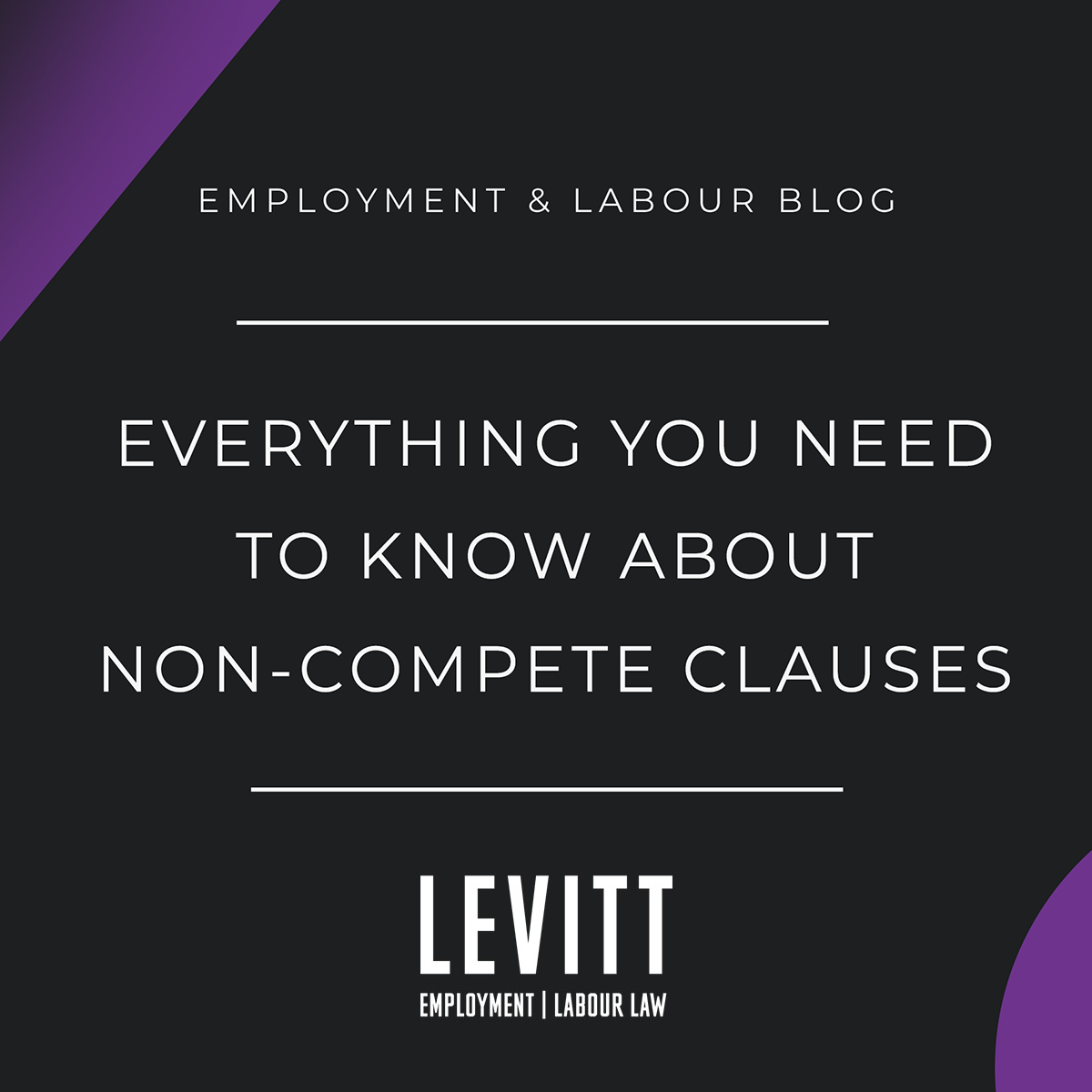A non-compete clause is a type of restrictive covenant. A restrictive covenant is a contract term that restricts the right of a former employee to engage in certain competitive practices against his of her former employee. Specifically, a non-compete clause prohibits a former employee from entering into a competing business with the employer.
An example of a non-compete clause is “The Employee agrees not to establish a competing business or otherwise engage in competition with the Employer within a 30 km radius of the Employer’s offices for a period of 2 years from the date of the termination of this contract”. The wording of a non-compete clause may be ambiguous and should be looked at by an experienced lawyer in our firm before signing an employment contract or quitting a job.
Employment Non-Compete Clause
For a non-compete clause in an employment contract to be enforceable, it must be reasonable. For example, the non-compete clause must be reasonable in terms of geographical (area) and time scope, considering the specific type of work and the interests involved.
Generally, courts have been more welcoming of a non-solicitation or a non-disclosure clause over a non-competition clause because the employer’s business interests can be adequately protected by the former clauses without having to use a broad non-competition clause.
A non-solicitation clause prohibits a former employee from attempting to persuade an employer’s customers to stop doing business with the employer, and instead, do business with the employee. A non-disclosure clause prohibits a former employer from disclosing information that has value to the employer.
A non-compete clause can prohibit a former employee from working in the same field which can be detrimental to that employee’s career. Therefore, if a non-solicitation clause would protect the employer’s interests instead, a non-compete clause will generally be unenforceable; however, this is not always the case.
Is My Non-Compete Clause Enforceable?
As every circumstance is different, this question is best answered by consulting our firm. Generally, a non-compete clause cannot be enforced if you agreed to the clause after beginning your employment and did not receive anything of value (consideration) for doing so. Additionally, if you have both a non-solicitation and non-compete clause, a Court might deem the non-compete unenforceable if the non-solicitation clause adequately protects the employer’s interests.
My Non-Compete Seems to Be Too Long in Length, Is it Enforceable?
Non-compete clauses that are long in time and wide in geographical scope may not be enforceable because of how broad the clause is. Specifics of a non-compete clause should be discussed with our firm to confirm if the clause would be unenforceable.
Will a 6 Month Non-Compete Clause Be Enforceable?
This answer will depend on the geographical scope of the non-compete clause as well as the interests the employer is trying to protect. Cases vary depending on each specific factor of an individual’s employment contract such as their occupation and which type of area the employee lives (city or rural). Please contact our firm for more information on the enforceability of your non-compete clause.
What Does My Employer Have to Prove to Enforce a Non-Compete Clause?
The employer will have to prove the clause is reasonably necessary to protect the legitimate interests of the former employer and that no alternative measure that is less restrictive on the former employee could protect the employer’s interests. Therefore, if the employer is attempting to protect a client or customer list, this interest would be better protected under a non-solicitation clause, not a non-compete clause.

